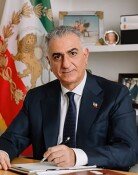Dubais Growth Model Called Into Question
Dubais Growth Model Called Into Question
Posted November. 30, 2009 08:45,
Why not? If you can have it in New York, why cant we have it here, said United Arab Emirates Prime Minister Sheikh Mohammed bin Rashid Al Maktoum in an interview with CBS in October 2007, when the global economy was booming.
When asked why he was in such a hurry since most would try and do this in a lifetime, not five years, the sheikh said, I want my people to live better now. Not after 20 years.
His answers explain how Dubai achieved rapid growth in a short period time and why the largest city in the UAE has faced a crisis equivalent to state bankruptcy.
In line with the prime ministers hope, Dubai was called a New York of the desert when its economy was booming. The citys adherence to appearance and haste led to its collapse, experts say.
Many have warned against Dubais appearance-centered growth strategy. The city was obsessed with anything being the worlds biggest and tallest, as shown by the construction of the worlds tallest tower, Burj Dubai, and the worlds first indoor ski resort, Ski Dubai.
When the city prospered, Dubai officials took such an obsession for granted by saying, After all, it will be the worlds biggest that draws people.
The problem is that what draws tourists and foreign investors in good time turns into a source of trouble in bad times. Dubai World, whose annual sales were 14 billion dollars, reportedly has more than 59 billion dollars in debts.
Seong Tae-yoon, an economics professor at Yonsei University in Seoul, said, Dubais economy would be in good condition had the world economy continued growing, adding, Every economy is cyclical, however. An economy whose growth depends on borrowing, like Dubais, is hit hardest when the global economy slows down.
Other economists, however, warn against a hasty conclusion that Dubais growth model has failed. They commended Dubai leaders for leading the city with a sense of crisis. The resource-scarce city transformed itself into a logistics hub due to forward-looking initiatives launched decades ago by its leaders to prepare for the time when its oil is depleted.
Other countries can also learn from Dubais policy of not discriminating against nationalities and customs if they are beneficial to its development. To follow international standards, many public organizations in the city do business Thursdays and Fridays, which are Islamic holidays, with some working around-the-clock.
Cho Dong-seong, a business administration professor at Seoul National University, said, Dubais creativity still deserves praise, adding, If it overcomes this crisis, Dubai will become stronger than ever.
jarrett@donga.com





![유학생들은 어쩌다 ‘먹튀’, 불법체류자가 되었나[이미지의 포에버 육아]](https://dimg.donga.com/c/138/175/90/1/wps/NEWS/IMAGE/2026/01/18/133179004.1.jpg)

